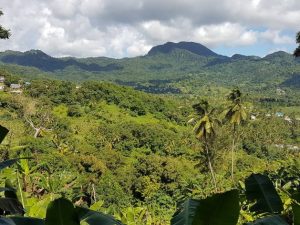Will the critical need to address digital sequence information break the Seed Treaty’s effort to fix its benefit sharing system? It probably should.The African Centre for Biodiversity and Third World Network are pleased to share this new briefing paper Prudence versus Pressure at the Seed Treaty. It addresses the crucial issue of digital sequence information (DSI).
In November 2019, the International Treaty on Plant Genetic Resources for Food and Agriculture (“Seed Treaty”) will meet in Rome for its eighth session. High on the agenda is the question of access and benefit sharing, concerning DSI. The Treaty will consider DSI both within the context of its six-year effort to revise the Standard Material Transfer Agreement (SMTA) and as a separate full agenda item.
For more on this please see our recent paper: Crunch Time for the Seed Treaty.
At issue is how to get the Treaty in step with new modes of sharing and using genetic resources. Today, rather than sending packets of seeds by airmail, plant breeders send genomic and protein sequences, epigenetic information and other data, collectively referred to as DSI, around the world electronically, and upload these to internet databases.
Such access and use of genetic resources are not covered by the language of the Treaty’s current SMTA, imperilling the objective of benefit sharing. The SMTA must be updated to include DSI if the Treaty is to be a viable benefit-sharing agreement.
But the challenges loom very largely. While there is intense pressure to fix the Treaty’s failing benefit sharing system, there is a lack of policy guidance on DSI from governments. The small Working Group mandated to revise the Treaty’s SMTA has not been provided with any decisions from the Governing Body of the Treaty or the Convention on Biological Diversity (CBD) and has failed to come to terms with the issue even at this very late stage.
There is a danger that the Treaty will adopt a newly revised SMTA that does not correctly address DSI with explicit provisions on what users can do with DSI, what they can and cannot hold as confidential, and related issues. These include the need for an understanding of how the DSI of seeds in the Treaty’s Multilateral System (MLS) will be handled in databases. Who can access and use that MLS DSI, and on what terms?
An SMTA that fails to include carefully-drafted DSI provisions would be a white elephant, a complicated and outmoded antique before its ink even dries. If negotiations do not make progress on DSI at breakneck pace at the Governing Body meeting in Rome, developing countries must not succumb to pressure to adopt a half-baked “solution”, which could be disastrous for the interests of the South and small farmers and indigenous peoples and local communities (IPLCs). Instead, they should delay any new SMTA and focus on forging policy understandings on DSI that can be incorporated into a revised SMTA to be adopted in the future.
– Third World Network




